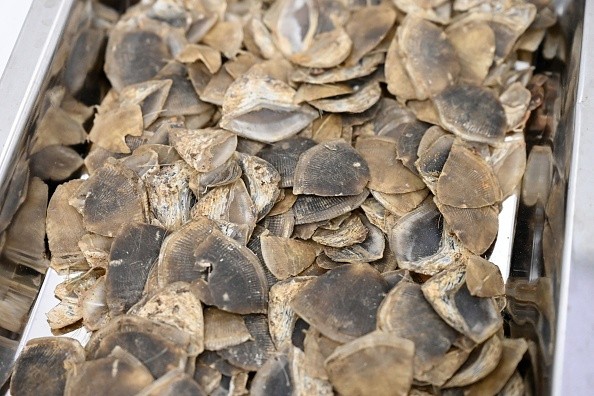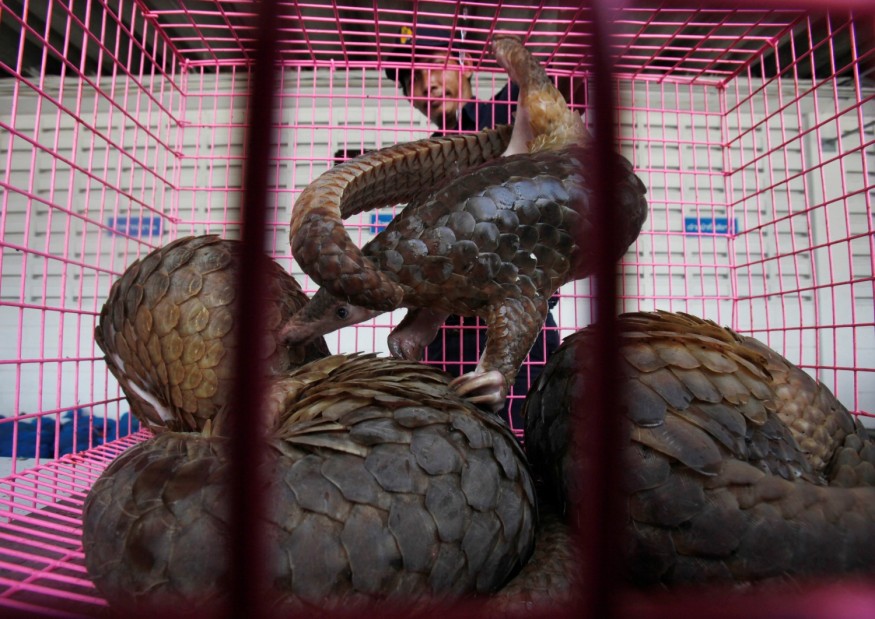After being rescued from the horrors of the illicit wildlife trade, pangolins, the world's most trafficked species, suffer from post-traumatic stress disorder (PTSD).
"The conditions they come from are sometimes terribly contaminated," Humane Society International Africa's Nicci Wright told Newsweek. "They're malnourished, dehydrated, and sometimes so feeble that they can't even roll themselves up."
A wildlife rehabilitation specialist, Wright, collects information on pangolin traffickers to save them. She also works at South Africa's Johannesburg Wildlife Veterinary Hospital, where pangolins are treated following their experience.
According to Wright, Pangolins might suffer mentally from being trafficked because the conditions in which they are kept are "horrific."
Pangolins Suffering from PTSD

Pangolins are found throughout Asia and Africa, and their complete armor of scales makes them instantly identifiable. Pangolins curl up into a ball for safety when touched or disturbed and utilize the razor scales on their tail to lash out at predators.
Every year on the third Friday in February, World Pangolin Day is observed to promote awareness of the species and the grave risks it confronts from humans.
Related Article : Wildlife Trafficking Plummeted Amidst the Pandemic, Giving Perfect Opportunity for Long-Term Solutions
Poaching
Despite the lack of scientific proof of their therapeutic benefit, they are poached and killed for their scales used in traditional Chinese medicine. Pangolin flesh and 'fetus soup' are considered a prestige symbol in certain societies. The soup is created from juvenile pangolin and is presented as a delicacy at some Asian restaurants as the most costly item on the menu.
The demand is mainly from Asia, although it is also increasing in Africa.
They are so frequently hunted that counting what remains of the population is practically impossible-they are rarely observed in the wild. Every year, up to 200,000 pangolins are poached. There were 466 shipping seizures in 2020.
Pangolins are hunted and murdered viciously. It gets bludgeoned till it is hardly able to move. It is then placed into boiling water while still bleeding.
While gathering intelligence on trafficking activities, Wright claimed she had seen a film of captive pangolins before they were rescued. Poachers have wired pangolins closed after rolling into a ball to defend themselves in some instances. Pangolins have also been tethered to a vehicle's steering wheel, where they have been coated in oil and fuel for days.
According to Wright, Pangolins were once discovered in plastic buckets, where they spent a week living in their pee and excrement. It's "devastating," she remarked, to see these "beautiful animals" trapped in this state.
"You will be enchanted if a pangolin stares you in the eyes... they appear like mythological creatures, like miniature dragons," she remarked. "Not to be dramatic, but if you handle a pangolin, it may be the last one; you never know."
Stress Levels

To regulate the pangolins' stress levels, Wright says they must have space to forage and feed in the wild after they've been treated.
"They are walked and allowed to forage and feed themselves in an area where there are plenty of ants and termites during the rehabilitation process," she explained. "We need them to do that to control their stress levels, and it also helps them recover psychologically because they have varied levels of PTSD, and they heal faster when they behave normally."
Rehabilitation
After rehabilitation, Pangolins are taken to release sites in Zululand and released into the wild. The Humane Society then monitors released pangolins for up to two years to ensure that they survive.
Wright stated in a news statement that, as dismal as the situation is, it is critical to focus on the positive aspects. This includes all successful rehabilitation initiatives, as well as "committed teams of law enforcement officers who risk their lives intercepting shipments."
For more animal news, don't forget to follow Nature World News!
© 2025 NatureWorldNews.com All rights reserved. Do not reproduce without permission.





